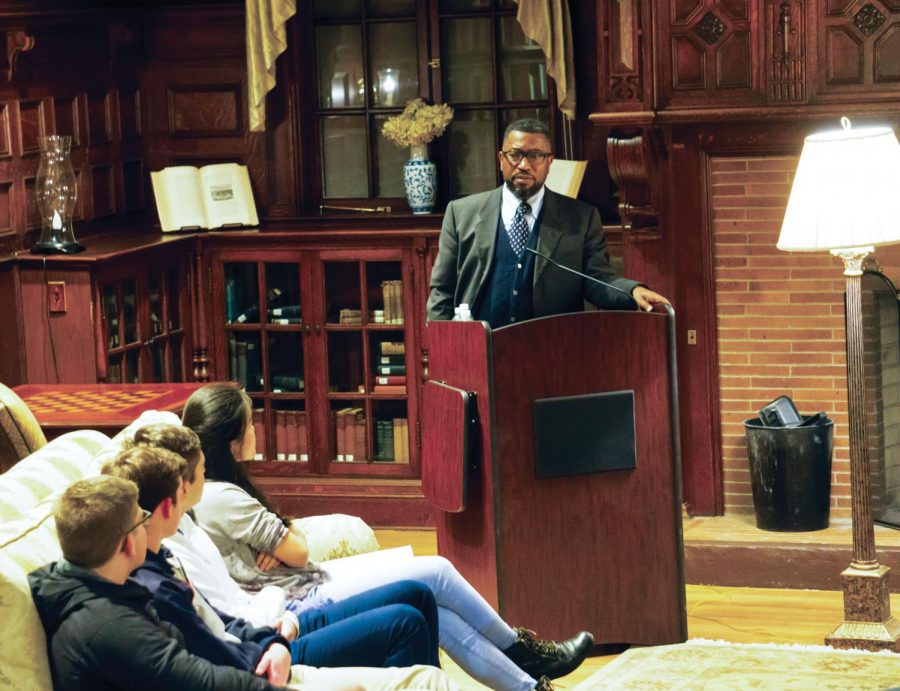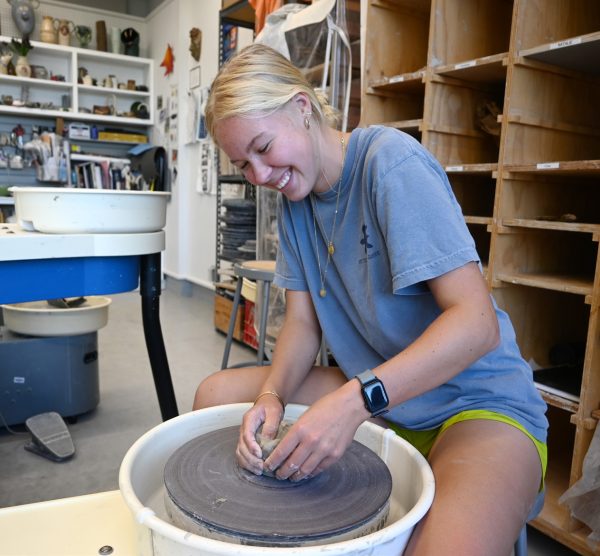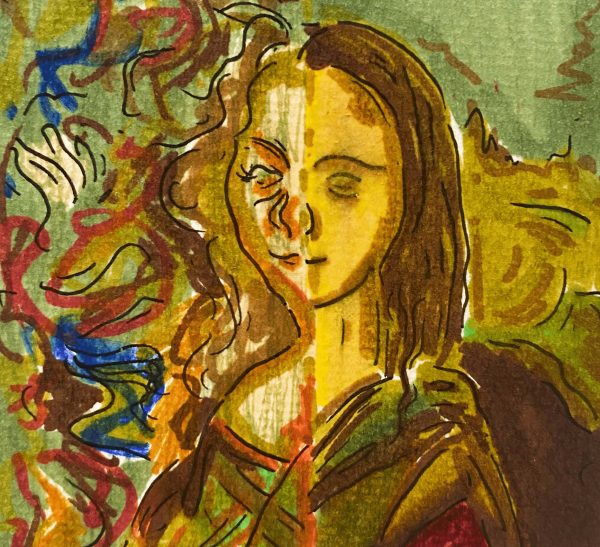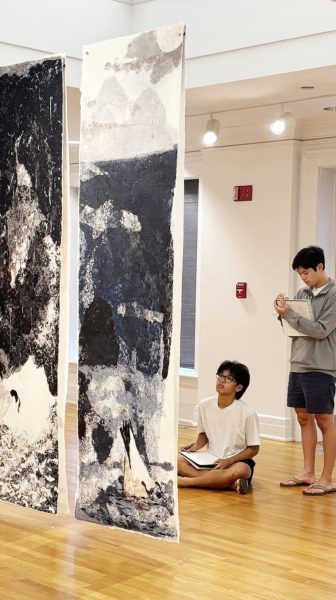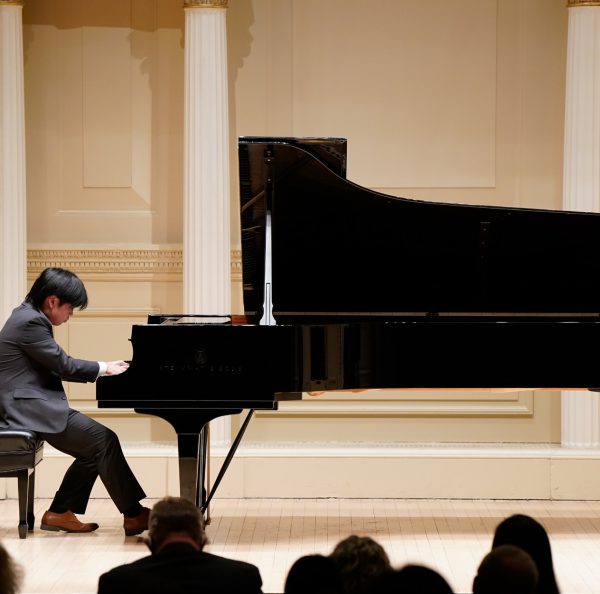Major Jackson Personalizes Poetry
Major Jackson recites his poetry for a student audience at the Harris House on Thursday, October 25.
Poet Major Jackson read his poem “Why I write poetry” to students and faculty last Thursday night in the Harris house living room: “Because my best friend in 4th grade chased city buses from corner to corner.”
Creative writing student Abby Sim ’20 introduced Jackson, who has three published collections of poetry: Holding Company, Hoops, and Leaving Saturn. He was the winner of the 2001 Cave Canem Poetry Prize, awarded to an African-American poet who has demonstrated excellence in poetry, and a finalist for a National Book Critics Award Circle. He is currently the Richard Dennis Green and Gold Professor at the University of Vermont and serves as the Poetry Editor of The Harvard Review.
The subject of Jackson’s poems are often ordinary people. He believes in giving a voice to the voiceless – those who are marginalized or systematically oppressed. Jackson’s “Mighty Pawns,” a one-sentence poem that carries over two pages, depicts Earl, an intelligent chess champion, who leads a challenging life under poverty. Jackson said, “Often what arises in my work are individuals I want the world to know. In this case I wanted the world to know this guy Earl.”
Major Jackson’s “Stand your Ground” is a politically-charged poem about the Florida law that allows for deadly violence in cases of self-defense, cited as justification by the killer of 17-year-old Trayvon Martin. Jackson tries to directly appeal to the reader using pronouns like “we” and “I.”
Jackson writes poetry about his personal experience. He read poems about girls in his high school and his first experience getting high. Sim ’20 praised his content and form, saying, “I like the musicality and the rhythm in his poems. I think it’s great the way he talks about political issues because it’s not in-your-face aggressive but more subtle.”
Jackson’s visit finished with a Q&A with students and faculty, in which he answered questions about poetry editing and his background in poetry and jazz. He said, “Punctuation is my jury, and the moon is my judge. I realized that punctuation is actually my friend. I like personifying punctuation as a jury or the self-set standard of one’s own utterings. And I think every poet wants to come up with a metaphor for the moon.”

